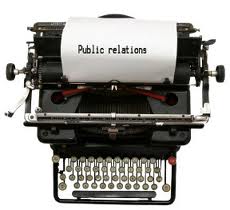 I am pretty much over this topic of redefining public relations, my core profession. Last year on this blog, we set out to do that very thing and engaged the globe in the best crowd-sourcing activity I’ve ever facilitated. It was high energy, awesome to have people on board, it was heady, and it was the coolest spur-of-the-moment thing I’ve ever done on my blog.
I am pretty much over this topic of redefining public relations, my core profession. Last year on this blog, we set out to do that very thing and engaged the globe in the best crowd-sourcing activity I’ve ever facilitated. It was high energy, awesome to have people on board, it was heady, and it was the coolest spur-of-the-moment thing I’ve ever done on my blog.
The outcome was a definition that came to be from a variety of sources, words, disciplines, expertise, practitioners seasoned and newbie, and those not in public relations.
“Public relations helps people say the right things to the right audiences at the right time and in the right way.”
Simple; no jargon; acceptable to a variety of professionals working in a variety of ways and with a variety of clients and industries. Perfect? Nope, not at all, and there was no expectation it would be.
We did this on a blog; no one spoke or researched or sat around the table debating words; this was done over four or five weeks of blogging on this topic and this topic alone. It was challenging and tedious, and I had to find an end so it didn’t drag on.
All along I encouraged PRSA to redefine public relations and delete its 1982 archaic definition. They weighed in on my blog, and I’d like to say I affected their decision to pursue this further. At Thanksgiving 2011, PRSA embarked on a poll to submit ideas for definitions. Even the New York Times ran an article on the process. Yippee! (Voting is open until Feb. 26; you can find the link in this paragraph.)
There were snags along the way and extensions and who knows what else. Then, three definitions appeared on @SpinSucks, and Gini’s community erupted. PRSA wrote a rebuttal in a guest post and the dissension was even louder; kinda like screaming.
I politely provided our collective definition above and was also politely shut down by the PRSA dude who said he didn’t like it. Who am I? A 27-year public relations practitioner who has seen the changes in this profession since before the fax machine. I’m no one special, but I am darn certain I know that his three definitions we’re supposed to vote on do nothing to define public relations.
To paraphrase Gini exactly, “the definitions suck.”
- Public relations is the management function of researching, communicating and collaborating with publics to build mutually beneficial relationships.
- Public relations is a strategic communication process that builds mutually beneficial relationships between organizations and their publics.
- Public relations is the strategic process of engagement between organizations and publics to achieve mutual understanding and realize goals.
I am so disappointed. The jargon provided here does nothing to energize a profession that is part of the backbone of organizations’ strategic positioning to external audiences and one that influences sales while working in tandem with marketing and advertising.
Pfffhhhhfttht.
That’s the wind that died from the sails. I’m not the only person thinking this way, and the emotions are strong. Please do read all the comments at Spin Sucks if you’re interested in this debacle.
When an entire profession cannot agree on what it does, then how shall companies and clients regard our credibility?
I don’t believe there will ever be consensus on a definition for public relations. I tried in my little corner to tackle a beast. An 80-year-old+ professional accrediting body and organization ought to be the one to generate agreement and consensus nationally because it means that much.
This is not a four-month project that ends in a vote for three same-sounding definitions; this should take at least 15 months to vet definitions chapter by chapter across the country.
This is not about me; this is about the respect for my profession. When the discontent in the profession speaks louder than the cooperation among its practitioners, then there is a PR crisis in the PR profession. Who’s going to fix that?





